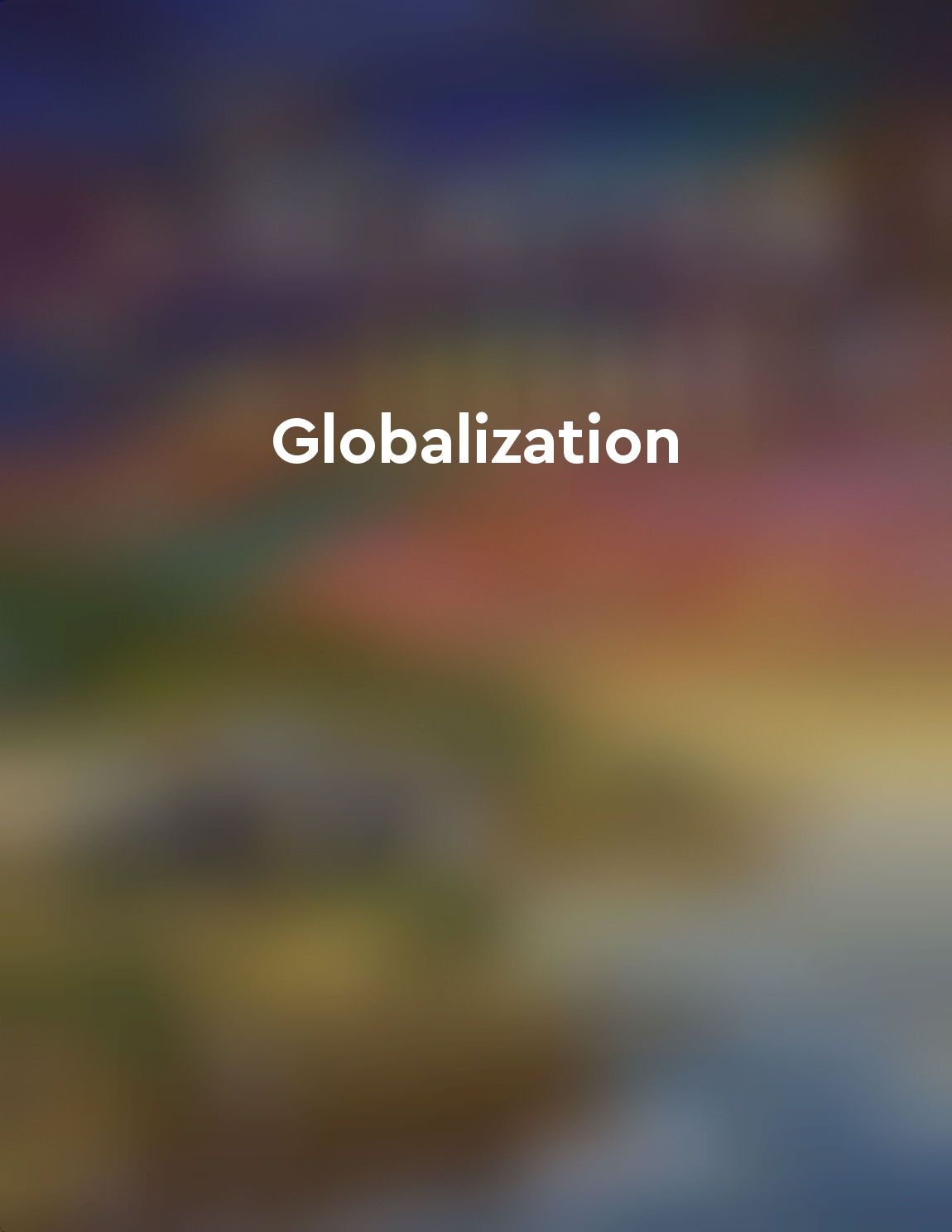Health consequences from "summary" of Globalization by
Health consequences can be understood as the outcomes of various global factors on individual and population health. Globalization has led to interconnectedness and interdependence among nations, impacting health in complex ways. One of the key health consequences of globalization is the spread of infectious diseases across borders due to increased travel and trade. This has resulted in the rapid transmission of diseases such as SARS, Ebola, and COVID-19, highlighting the need for global cooperation in addressing health threats. Moreover, globalization has also influenced lifestyle choices and behaviors, leading to an increase in non-communicable diseases such as diabetes, obesity, and cardiovascular diseases. The availability of processed foods, sedentary lifestyles, and environmental factors have contributed to the rise of these health issues, posing significant challenges to healthcare systems worldwide. Additionally, economic globalization has widened health inequalities within and between countries, as marginalized populations often lack access to healthcare services and resources. Furthermore, the globalization of the pharmaceutical industry has both positive and negative health consequences. While it has improved access to life-saving medications in many regions, it has also led to issues such as the high cost of drugs, counterfeit medications, and the overprescription of antibiotics. These challenges have implications for public health and require coordinated efforts at the global level to ensure the safe and effective use of pharmaceuticals.- Health consequences of globalization are multifaceted and require a holistic approach to address effectively. From the spread of infectious diseases to the rise of non-communicable diseases and disparities in healthcare access, globalization has reshaped the landscape of global health. It is essential for policymakers, healthcare professionals, and international organizations to collaborate and implement strategies that promote health equity and address the interconnected nature of health in a globalized world.


